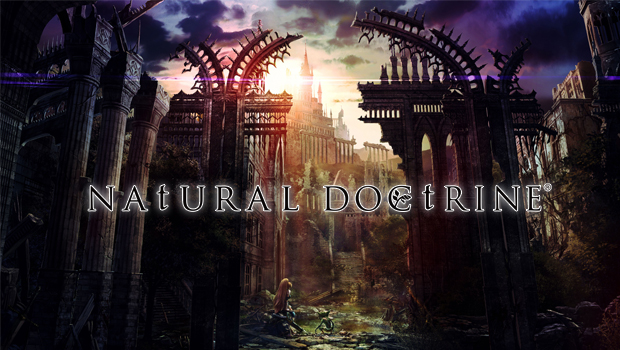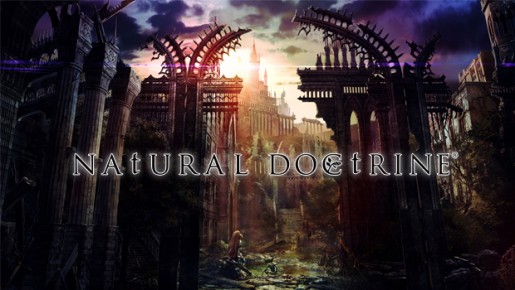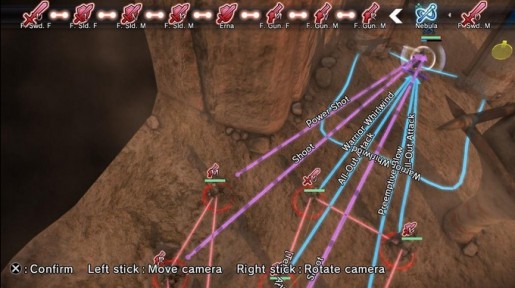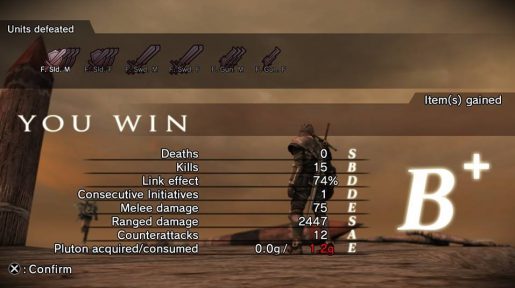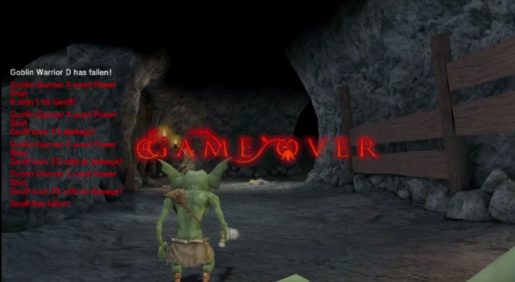The PlayStation 4 has undoubtedly been lacking in role-playing games since its launch. Now, one of the first to make its way to American shores, has arrived but it’s not traditional by any means. Part X-Com, part Stella Deus, NAtURAL DOCtRINE toys with the idea of natural selection. With its soul crushing difficulty matched only by the Demons/Dark Souls games of recent years, can NAtURAL DOCtRINE devise a strategy to make you see its story to the end, or will gamers struggle with the constant struggle of ‘getting good’?
The story to NAtURAL DOCtRINE follows a narrative of ‘natural selection’ and a rather grim tale. Geoff and his group of explorers are venturing out into the world to gather up Pluton, a finite energy source that has to be refined to be of any use, although goblins and those that can use magic can take advantage of it without any ill effects. There’s a tale of political subterfuge, multiple races going to war, and a surprisingly gruesome fate that you’ll have to push through to see for yourself.
NAtURAL DOCtRINE‘s unique combat system, and source of nearly every player’s frustration, stems from its complex link system. Most every action or attack you perform has a range of effect that can cause a link with all or some of your party members, even if they have already taken a turn before. This comes at a small price as those that link up have a reduced initiative and have to wait longer to take another turn, but that added manpower can frequently be just enough to take out an enemy sniper that has his sights on a crippled mage or front line swordsman that can link up with another set of enemies for a party-wiping attack. Game Over screens are something you’ll just have to grow accustomed to, as the game feels heavily steeped in a trial-and-error system.
Often times, you’ll find yourself funneled into a tight corridor with little options for mobility and tactical positioning only to find yourself at the other end of a goblin firing squad. On the other hand, sometimes not moving and taking up a defensive approach won’t work quite as well for the exact same reasons. Finding a middle ground between going bold and advancing forward or holding back and bolstering your defenses is a very fine line to tow and the only reward you’ll often find is the satisfaction of living to fight another battle.
Even from the moment you start up the game for the first time, a plethora of skills present themselves that provide a link effect. The main character wields a shield that can guard and give those adjacent to him an extra turn, the party’s cleric can hurl potions that give each character in the same square an extra turn, and so forth. My only complaint with the link system (aside from the enemy AI’s insistence on maximizing the mechanics with multiple links) is that non-combat actions, such as pulling a lever or using Tatyana to open a treasure chest, can’t be performed while linked up.
Customization in NAtURAL DOCtRINE is a limited affair, and actually marks to be one of the more positive parts about the game. Think of it like Chess 2.0 where you have slightly varied armies that can change the core game. Each member of your ever growing party has a skill tree and you never have to commit to. Skill points can be changed freely between missions to give your units a bit of flexibility. One practical requirement is giving each party member access to potions. Not only will these restore precious HP, but they can also trigger link skill effects for every character in the affected square. Weapons are also a mixed bag when it comes to customization. One gun I acquired for Tatyana early on doubled her attack power but reduced her chance to hit down to 66%, a sacrifice I was willing to make especially with how often she was able to counterattack an enemy and kill them before my party took any damage.

